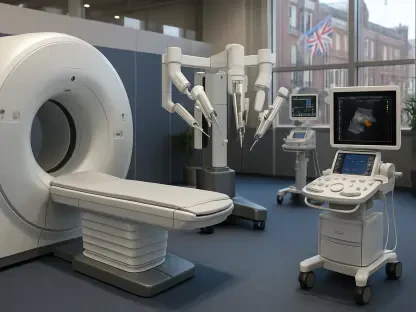In recent years, Kentucky has embarked on a mission to transform its Medicaid system to better serve its residents—approximately 1.6 million individuals, about a third of the state’s population. The significance of the Medicaid program in the state’s economic and social framework is undeniable, consuming 18 percent of the General Fund budget.
Given that last fiscal year alone saw a staggering $19.6 billion expenditure on Medicaid, these figures underscore a growing concern about spending efficiency and public health outcomes. With chronic illnesses and preventable hospitalizations refusing to decline, initiatives have been set in motion to reform this essential healthcare service. The modernization efforts not only aim to harness spending but also to create a functional system with more accountability and improved health outcomes.
Legislative Efforts for Systemic Reform
One significant step in Kentucky’s modernization journey is the introduction of legislative measures designed to fine-tune the Medicaid program’s operations. House Bill 695, for example, seeks to align Medicaid more closely with its foundational goal of improving health by introducing a work requirement for able-bodied recipients who do not have caregiving responsibilities. By promoting personal responsibility, the legislation suggests that such recipients can engage in the workforce, thereby reducing reliance on Medicaid. To support informed decision-making, the bill also emphasizes the need to enhance data collection, particularly in areas like behavioral health and managed care.
Furthermore, rural and underserved communities face significant challenges in accessing basic health services, partly due to reimbursement disparities. Senate Joint Resolution 26 targets these imbalances by rectifying pharmacist payment issues. Meanwhile, House Bill 152 facilitates increased federal funding for public ambulance services, ensuring vital emergency services remain accessible to those who need them most. By addressing these reimbursement gaps, the legislation hopes to sustain crucial health services that form the lifeline for Medicaid-dependent populations.
Enhancing Oversight and Accountability
Another crucial aspect of Kentucky’s Medicaid reform involves strengthening oversight mechanisms. Senate Bill 25 establishes the Medicaid Oversight Advisory Board, a bipartisan entity tasked with evaluating the efficacy and performance of Medicaid services. This board represents a concerted effort to ensure that the program’s outcomes align with its financial inputs. In addition to the advisory board, the Office of the Ombudsman has been given a more defined role in monitoring and facilitating transparency in Kentucky’s Medicaid operations.
Moreover, SB 25 also addresses social determinants of health—like housing—that indirectly impact public health. By enabling local governments to fund multifamily housing projects, the government aims to create healthier communities, indirectly reducing the strain on healthcare systems. By broadening the scope of Medicaid oversight beyond traditional parameters, Kentucky is setting the stage for meaningful, long-lasting change that could serve as a blueprint for other states grappling with similar challenges.
A Path Towards Sustainable Impact
Kentucky is modernizing its Medicaid program with legislative measures aimed at improving healthcare delivery. House Bill 695 introduces a work requirement for able-bodied Medicaid recipients without caregiving duties. The goal is to promote personal responsibility by encouraging work participation, thus diminishing reliance on Medicaid. Additionally, the bill stresses the enhancement of data collection, focusing on behavioral health and managed care, to support informed policy decisions.
In rural and underserved communities, accessing healthcare poses significant challenges, partly due to reimbursement inequalities. Senate Joint Resolution 26 addresses these issues by resolving payment discrepancies for pharmacists. Concurrently, House Bill 152 aims to boost federal funding for public ambulance services, ensuring emergency services remain accessible to those in need. By tackling reimbursement gaps, this legislation endeavors to maintain essential healthcare services crucial for Medicaid-dependent populations, providing a lifeline for many Kentuckians.









